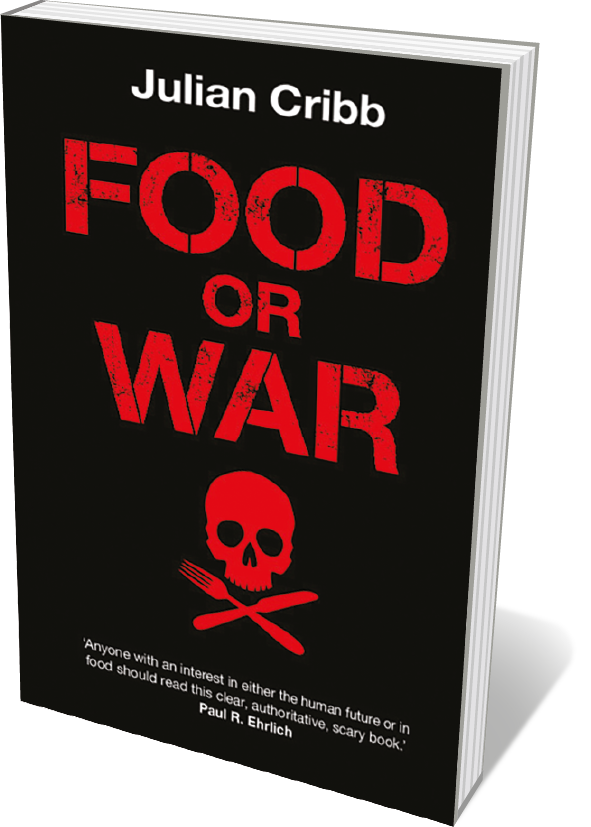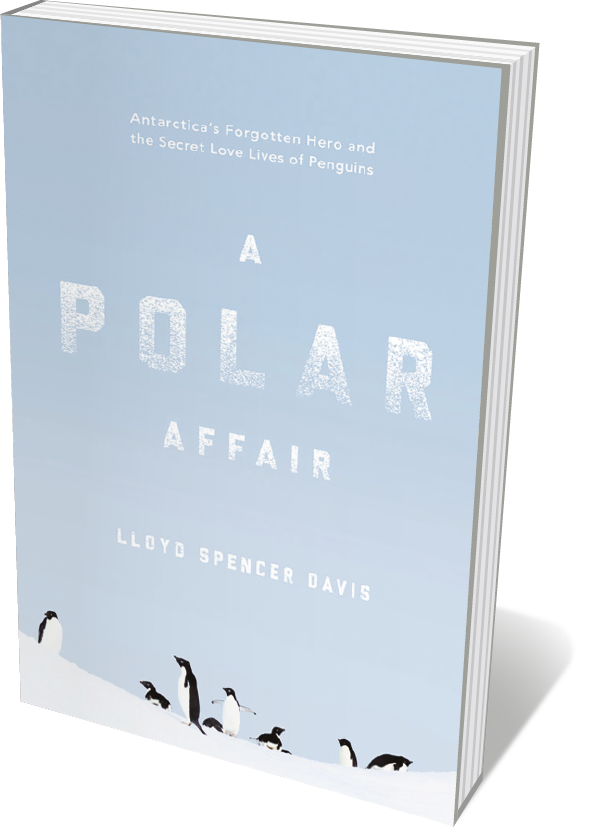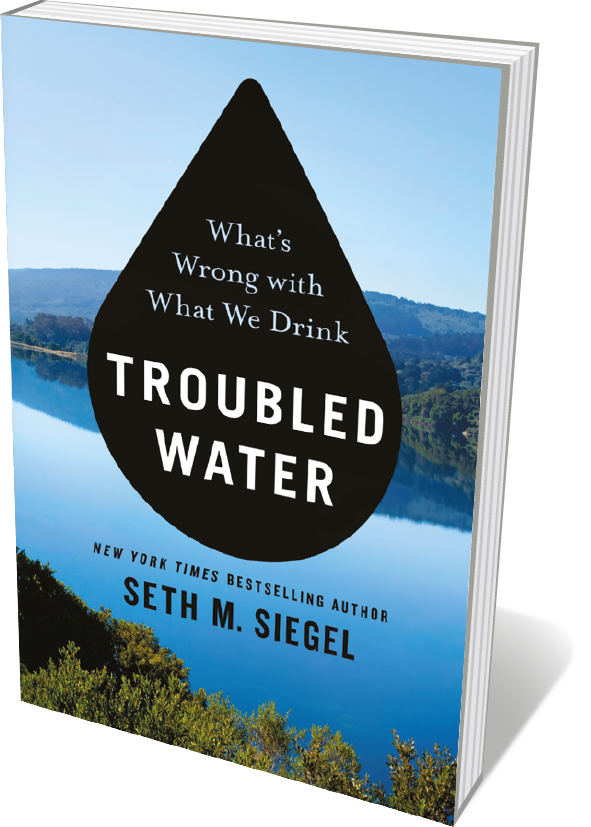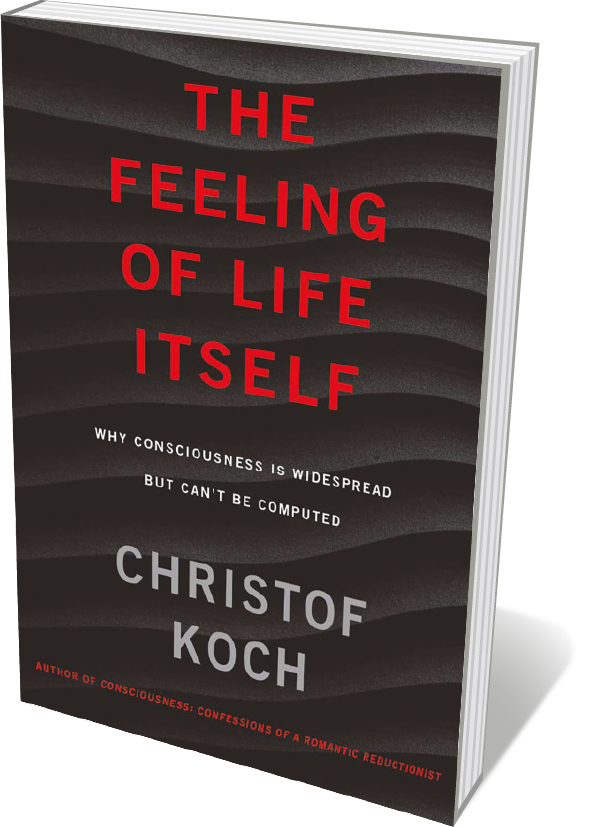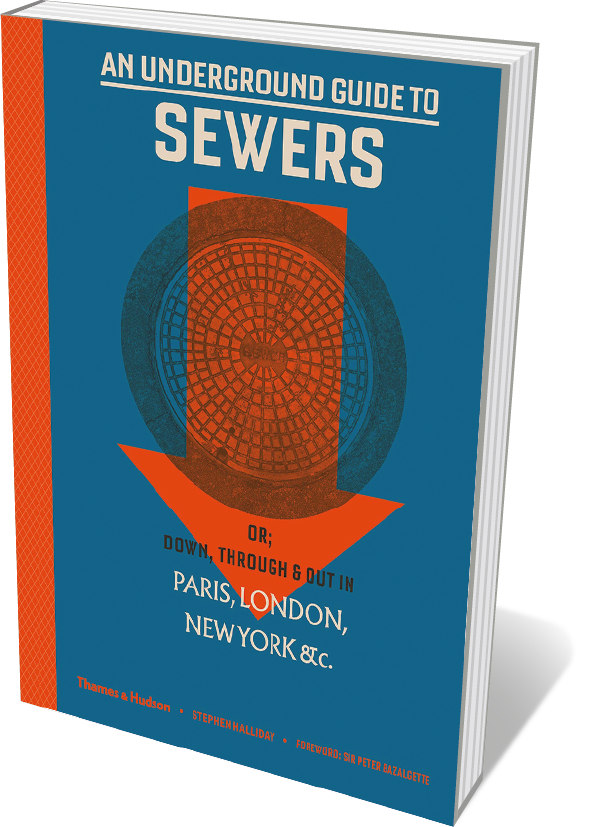Barbara Kiser
Search for this author in:
Food or War
Julian Cribb Cambridge University Press (2019)
Hammered by environmental stresses and mismanagement, our food system is inequitable and unstable. As science journalist Julian Cribb argues in this incisive analysis, that can lead to conflict — as it did during the 2007–10 drought in Syria, which devastated crops and helped spark the war. Cribb’s bold prescription for sustainable global agriculture envisions harnessing urban waste as a feedstock for ‘food loops’ and incorporating rooftop farms, ‘agritecture’, ecological farming methods and funding from redirected military budgets. Devastating and inspiring in equal measure.
A Polar Affair
Lloyd Spencer Davis Pegasus (2019)
In this intriguing scientific history-cum-memoir, penguin biologist Lloyd Spencer Davis harks back to a pioneering predecessor. George Murray Levick, a physician on Robert Falcon Scott’s ill-fated 1910 expedition to Antarctica, became the first to study penguins scientifically as he overwintered in an ice cave. His manuscript, The Sexual Habits of the Adélie Penguin (1915), documented behaviours he saw as “depraved”; it was suppressed for a century. Meanwhile Davis, unwittingly treading in Levick’s footsteps, uncovered many of the same findings. A rip-roaring read on research at the edge.
Troubled Water
Seth M. Siegel Thomas Dunne (2019)
US water-supply crises go far beyond Flint, Michigan (see M. Peplow Nature 559, 180; 2018). So reveals environmental writer Seth Siegel in this engrossing, well-reported survey of cases such as that of Hoosick Falls, New York, where contamination with the industrial chemical perfluorooctanoic acid has been linked to kidney cancer. The culprits, he argues, include Congress, the chemical industry and a lax Environmental Protection Agency. Yet, although these stories are grim, the outcomes could be very different if communities had access to filtration, scientific advice and other easy solutions.
The Feeling of Life Itself
Christof Koch MIT Press (2019)
How is consciousness linked to the fatty, watery organ lodged in our skulls? The mind–body problem has troubled thinkers for millennia. In the past decade, however, experimentation has spotlit some of the conundrum’s darker corners, as Christof Koch (president of the Allen Institute for Brain Science in Seattle, Washington) reveals in this invigorating study. Koch tracks the “neural footprints” of experience; swims off the wilder shores of integrated information theory; and speculates about the “feeling of life itself” in ravens, bees and octopuses — along with related ethical concerns.
An Underground Guide to Sewers
Stephen Halliday Thames & Hudson (2019)
From flush toilets 4,000 years old on the Greek island of Santorini to Eugène Belgrand’s elegant Belle Époque sewers under Paris, sanitation has a certain cachet. This splendid illustrated volume by Stephen Halliday swirls through millennia of ingenious waste management. Here are, for instance, London’s vast Victorian system designed by Joseph Bazalgette; Tokyo’s gargantuan underground discharge channel; and Sedron Technologies’ cutting-edge Janicki Omni Processor, which uses steam power and filtration to rapidly convert waste to drinkable water and energy.
Nature 574, 35 (2019)
Source: Resources - nature.com

